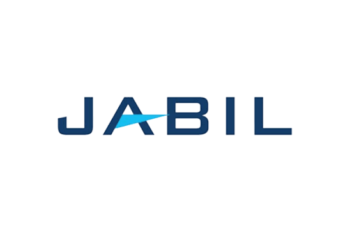In recent years, the artificial intelligence (AI) industry has rapidly advanced, influencing nearly every sector of society, from healthcare to finance, and even entertainment. As AI technologies continue to evolve, so does the need for thoughtful and effective regulation. However, many members of Congress, unfamiliar with the intricacies of AI, are playing catch-up. Recognizing this knowledge gap, AI companies have increasingly taken on the role of educators, adopting a light lobbying approach to inform legislators from a corporate perspective.
Education as a Primary Goal
The fast-paced development of AI has created a critical need for education among lawmakers. As technology outpaces legislative efforts, many members of Congress are faced with the challenge of regulating industries they may not fully understand. The AI industry has seized this opportunity by focusing much of its lobbying efforts on education rather than aggressive policy advocacy. Their goal is simple: to ensure that Congress is well-informed about the capabilities, benefits, and potential risks of AI, all while shaping the narrative from a corporate perspective.
AI companies are hosting workshops, seminars, and one-on-one meetings to demystify AI for lawmakers. These educational efforts cover the basics of AI, how it is used in specific industries, and its potential to address key societal challenges such as healthcare and climate change. In doing so, companies aim to steer discussions around AI policy in a direction that supports their business models while highlighting the advantages of AI for the economy and society.
A Gentle Approach to Lobbying
Unlike industries such as oil or tobacco, which have historically taken an aggressive lobbying stance, the AI industry has adopted a more measured approach. This “light touch” method involves providing information and context rather than pressuring lawmakers with direct policy demands. In practice, this means AI lobbyists are spending more time educating lawmakers about how AI works, its potential for growth, and the challenges it may pose, such as issues related to privacy, bias, and job displacement.
This method allows AI companies to shape the policy debate without appearing overly self-interested. By positioning themselves as partners in the legislative process rather than adversaries, AI firms aim to build trust with lawmakers. Their goal is to avoid heavy-handed regulations that could stifle innovation, while ensuring that any regulations that do emerge are conducive to the industry’s continued growth.
Corporate Influence and AI Policy
While education is the primary focus, there is no denying that AI companies have a vested interest in shaping AI policy to benefit their own business models. Through educational campaigns, corporations can subtly frame key policy debates in their favor. For instance, discussions about AI ethics and the potential for job displacement may be balanced by highlighting AI’s ability to increase productivity and create new markets. This corporate perspective ensures that the benefits of AI are emphasized, while potential downsides are mitigated in the policy discourse.
Moreover, AI firms often highlight the global competition for AI dominance, framing the debate in terms of national security and economic competitiveness. By emphasizing the need for the U.S. to remain at the forefront of AI development, these companies can push for policies that promote innovation and investment, such as favorable tax treatments, research and development incentives, and light regulatory frameworks.
Challenges of Corporate-Led AI Education
While the AI industry’s educational efforts are valuable, they raise questions about whether Congress is getting a balanced view of the issues. When AI companies provide the majority of the information, there is a risk that lawmakers may not fully grasp the more contentious aspects of AI, such as privacy concerns, algorithmic bias, and the long-term impacts on employment.
Some critics argue that while these educational campaigns present themselves as neutral, they often reflect the interests of the companies providing the information. For example, a tech firm may downplay the potential for AI to exacerbate societal inequalities or fail to address concerns about the concentration of AI power in the hands of a few large corporations.
Conclusion: A Balanced Approach Needed
As the AI industry continues to grow and play an increasingly central role in the economy, Congress will need to develop a nuanced understanding of the technology in order to create effective and balanced regulations. While AI companies’ light lobbying touch has proven effective in educating lawmakers, it is important for Congress to seek out diverse perspectives and remain vigilant against policies that overly favor corporate interests.
In the end, the key to a healthy legislative environment for AI will be ensuring that education efforts reflect a wide range of views, balancing the needs of innovation with the protection of public interests. The light lobbying touch of the AI industry may guide the conversation, but the decisions ultimately rest with lawmakers who must safeguard the common good.






